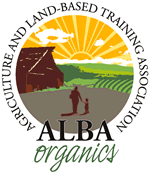
Basil now grows in many regions throughout the world, but it was first native to India, Asia and Africa. It is prominently featured in varied cuisines including Italian, Thai, Vietnamese and Laotian while most famous as a key ingredient in pesto. The name "basil" is derived from the old Greek word basilikohn, which means "royal," reflecting that ancient culture's attitudes towards an herb that they held to be very noble and sacred.
Basil is an excellent source of vitamin K and a very good source of iron, calcium and vitamin A. In addition, basil is a good source of dietary fiber, manganese, magnesium, vitamin C and potassium. In addition basil's eugenol content, which can inhibit the activity of an enzyme in the body called cyclooxygenase, qualifies it as an "anti-inflammatory" food that can provide important healing benefits along with symptomatic relief for individuals with inflammatory health problems like rheumatoid arthritis or inflammatory bowel conditions.
Fresh basil should be stored in the refrigerator wrapped in a slightly damp paper towel. It may also be frozen, either whole or chopped, in airtight containers. Alternatively, you can freeze the basil in ice cube trays covered with either water or stock that can be added when preparing soups or stews.
(for more information visit http://www.whfoods.com)




No comments:
Post a Comment